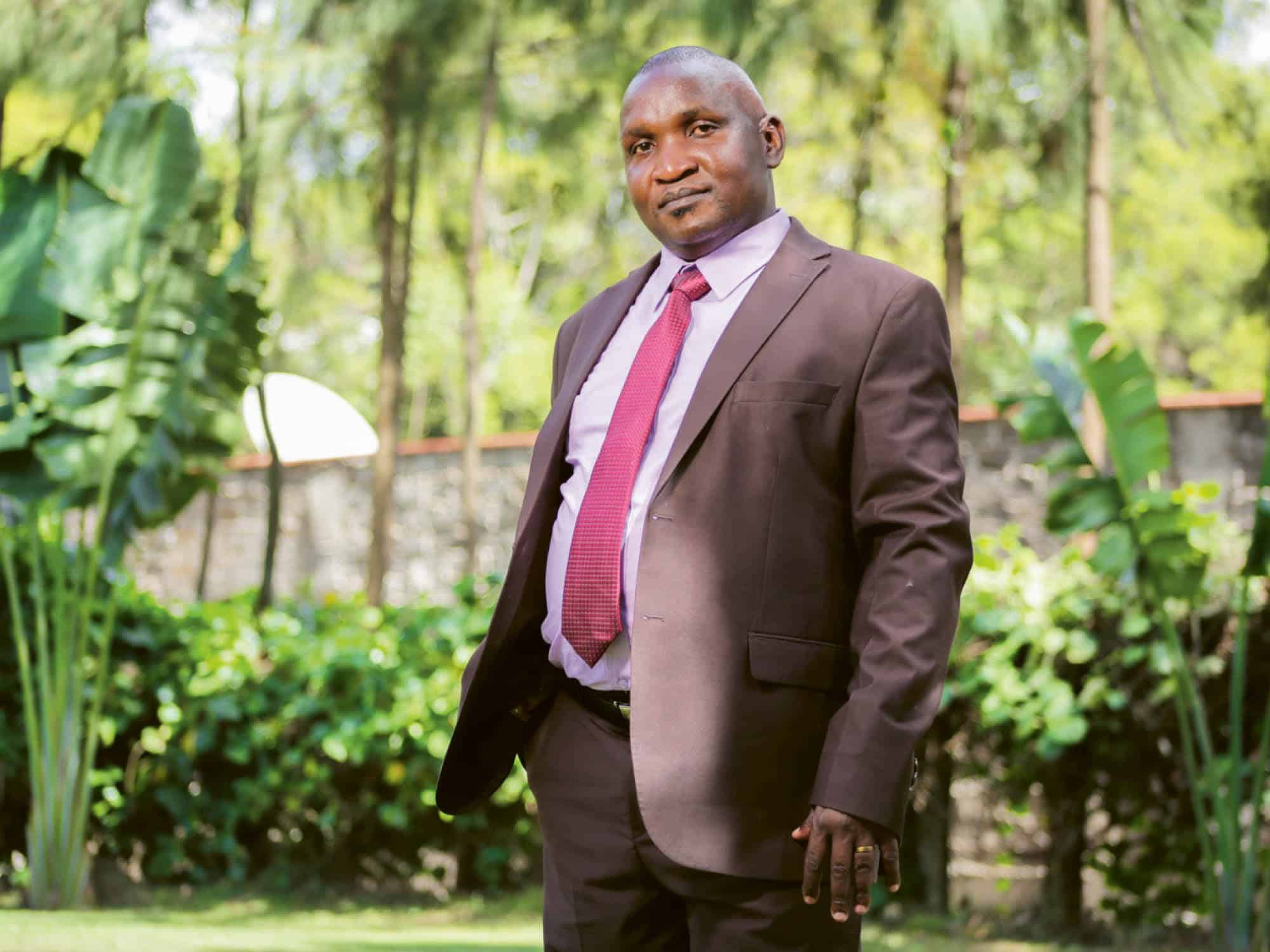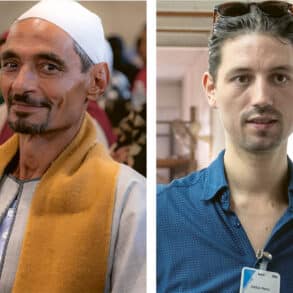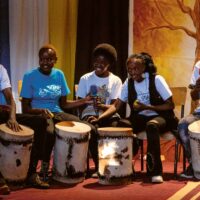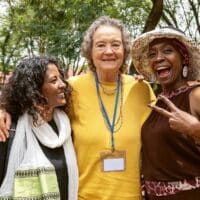Josphat Gogani’s journey from a small village in Kenya to his current role at the Nairobi Waldorf School is a testament to the power of resilience, compassion, and the belief that every child has the potential to succeed.
Born in the small village of Gimengwa in western Kenya, my early years were marked by my family’s financial struggles and the absence of my father, who worked far from home. He worked on a coffee farm in Kiambu, near the capital city of Nairobi, but was often unpaid, so my mother took on small jobs, and my older siblings dropped out of school to help support the family. Despite these hardships, the simplicity of rural life and the vibrant natural surroundings filled my childhood with joy—playing with a football made from banana fibres and sliding in the muddy fields during the rains. I loved fetching firewood and water, as this was very basic in ensuring that cooking happens.
I was the fourth of seven children, and although my older siblings had to forgo their education, I was determined to complete my studies. My path to education was anything but smooth. After completing primary school, I managed to progress through high school with the help of a kind teacher who offered me small jobs. I skipped an entire year of school due to financial constraints but was eventually allowed to advance directly to my final year. This experience instilled in me a resilience that would later shape my career in special education.
My introduction to special education was serendipitous. After finishing high school, I began teaching at the newly established neighbouring school in my village. It was here that I encountered children with intellectual challenges for the first time. They were often marginalised, with only one dedicated teacher working tirelessly to support them. As a new teacher stepping into the world of education, I had little experience interacting with children with special needs. However, from the moment I met them, I was deeply touched by their love and innocence. I noticed the overwhelming challenges faced by the special needs teacher, whose environment—and that of the students—felt isolated and disconnected from the broader school community. It was as though the special education unit existed on its own island, separate from the rest of the school.
Despite this, I found myself drawn to these children, not just as a professional but as a human being. My heart went out to them, and I developed a strong desire to be part of their world. It wasn’t the profession that drove me, but the love and compassion I felt for them. Supporting these children has become a passion for me—one that stems from a genuine place of wanting to help them grow and thrive every day. It’s this love and commitment to their well-being that motivates me to stay, learn, and grow alongside them. I was drawn to this teacher’s compassion and found myself assisting him whenever possible. This experience ignited a passion within me—a calling to support children who, like me, had to overcome significant obstacles to achieve their potential.
Over the years, I pursued formal training in special education, eventually earning a degree in Special Needs Education. Today, I work at the Nairobi Waldorf School, where I coordinate the evaluation and assessment of children facing learning challenges. My work is deeply influenced by the anthroposophical philosophy of Rudolf Steiner, which emphasises the natural development of each child’s physical, mental, and spiritual well-being.
The Evolution of Special Education in Africa
Special education in Africa has evolved significantly, shaped by changing societal attitudes and educational practices. Historically, children with disabilities were often excluded from mainstream education. However, the growing recognition of human rights and the importance of inclusivity has led to the development of policies and frameworks that promote equal access to education for all.
In the context of Africa, the challenges are unique. Many children with special needs face multiple layers of discrimination based on their disability, race, gender, and socioeconomic status. This intersectionality requires a holistic approach to education, one that addresses not only academic needs but also social, emotional, and psychological well-being.
The Waldorf educational approach, with its emphasis on curative and aesthetic education, offers a particularly resonant solution. It aligns with the anthroposophical view that every individual has the potential for growth and deserves an environment where they can flourish. At Nairobi Waldorf School, we strive to create such an environment, where children with complex needs are not just integrated but celebrated.
Our love for these children and for education itself drives us to offer them the best education. Education is normative and holds something good that reveals itself upon receiving it. Children with learning difficulties deserve this same normative education so they, too, can discover the good hidden within it.
At Nairobi Waldorf School, where I work, we have witnessed a tremendous change in the perception of complex needs among teachers, students, and parents. The message that we are all human beings, each with our place to hold and path to follow, has resonated deeply. The journey to reach our goals is taken in steps, and we may not all arrive at the same time. This powerful message is both meaningful and magnificent, offering hope and brightness to parents and children with complex needs.
The Future of Special Education: A Call for Ubuntu
Looking ahead, the future of special education in Africa must be rooted in the concept of Ubuntu—a recognition of our shared humanity. Inclusive education should be more than just a policy; it should be a reflection of our commitment to each other as human beings. This philosophy should guide our efforts to create educational spaces where every child, regardless of their abilities, is valued and supported.
As a special education teacher, I see my role as more than just an educator; I am an advocate, a mentor, and a member of a larger community that is responsible for the well-being of every child. My personal journey is a testament to the power of resilience, compassion, and the belief that every child has the potential to succeed.
In conclusion, the evolution of special education in Africa is a story of hope and progress, but it is also a call to action. As educators, parents, and community members, we must continue to work together to ensure that all children, regardless of their challenges, have the opportunity to thrive.
Josphat Gogani is a collaborator of the World Social Initiative Forum WSIF and the East Africa Association Anthroposophical Conference held in April 2024 in Nairobi, Kenya
More Nairobi Waldorf School Trust
Image Josphat Gogani. Photo: Dennis Indula









